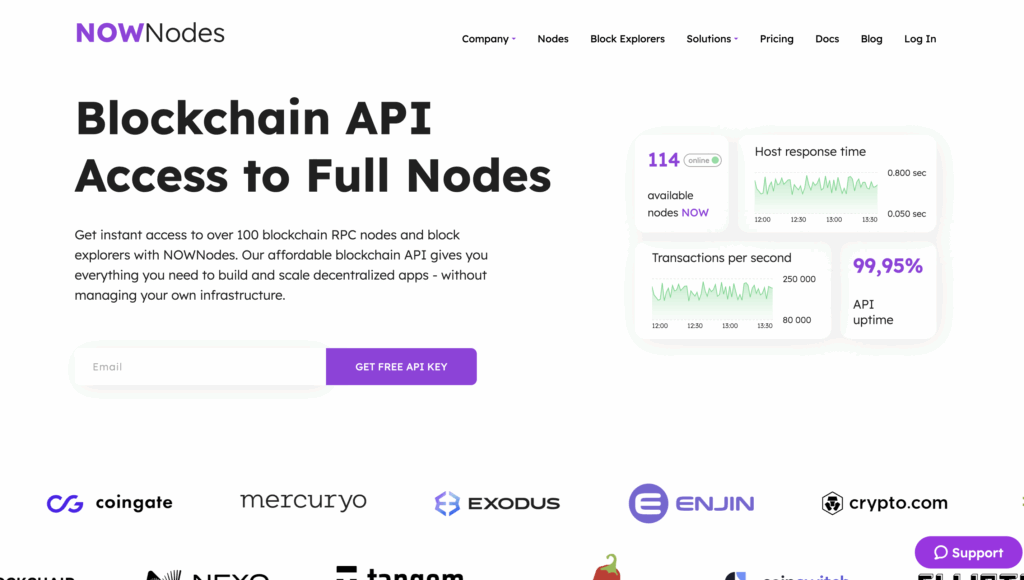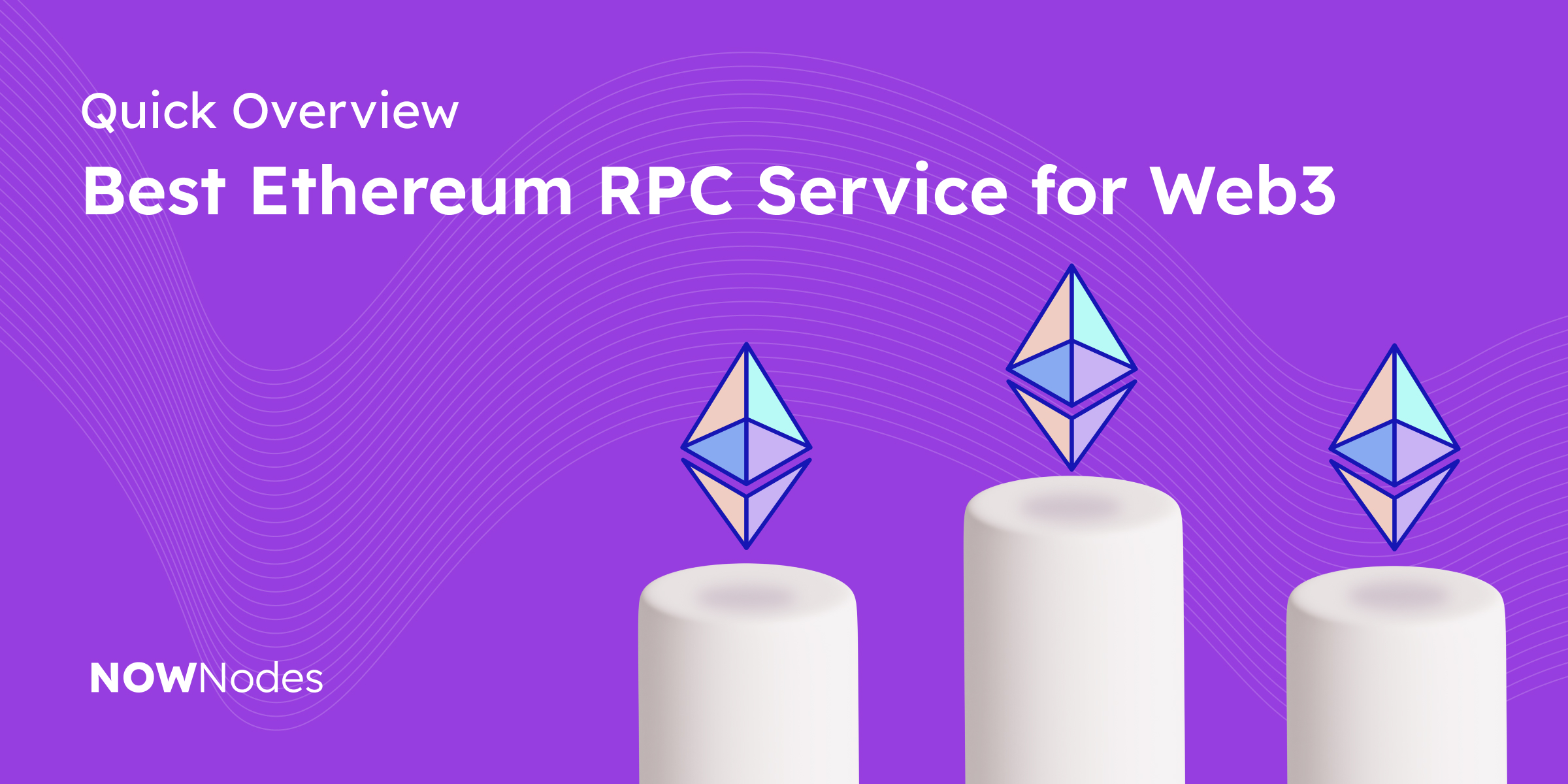As Web3 technology continues to reshape digital infrastructure in 2026, choosing the best Ethereum RPC service for Web3 has become a critical decision for developers and organizations building decentralized applications.
The RPC layer (Remote Procedure Call) is the communication bridge between your frontend and the Ethereum blockchain. Whether you’re fetching balances, interacting with smart contracts, or submitting transactions, a reliable RPC connection is essential for performance, uptime, and user experience.
This guide explores what makes a provider the best Ethereum RPC service for Web3 in today’s multi-chain, high-traffic ecosystem – and why NOWNodes is a standout choice for developers looking for fast, secure, and scalable RPC infrastructure.
NOWNodes

NOWNodes offers fast and stable access to full and archive Ethereum nodes, with a unified API that covers over 110 other blockchains. There’s no need to host or maintain your own node – the platform provides ready-to-use endpoints for Ethereum and beyond.
Developers can integrate RPC or WebSocket connectivity with just a few lines of code, scale as needed, and build confidently knowing the infrastructure can handle production traffic.
Key advantages of NOWNodes:
- Access to full Ethereum nodes
- WebSocket support for real-time updates, subscriptions, and event listeners
- 99.95% uptime through globally distributed infrastructure
- Straightforward integration with clean API endpoints and detailed documentation
- Support for 110+ networks including Ethereum, Arbitrum, Optimism, Polygon, Bitcoin, and more
- Developer-friendly plans, including generous free-tier options and enterprise-grade SLAs
- Responsive technical support and custom solutions for high-throughput apps
NOWNodes combines multi-chain access, performance, and ease of use – making it ideal for Web3 teams of any size, from early-stage builders to large-scale platforms.
Infura
Infura has long been a staple of the Ethereum development stack. Backed by ConsenSys and integrated with tools like MetaMask, it remains a widely used provider, especially for simple Ethereum-based projects.
However, as the ecosystem becomes more multi-chain and developers seek flexibility, Infura shows its limitations. It primarily supports Ethereum and a few selected chains, applies strict rate limits on free tiers, and often requires account setup or project IDs for access.
For many developers, these restrictions can slow down testing, integration, or scaling.
Alchemy
Alchemy positions itself as a premium infrastructure provider offering enhanced APIs, performance monitoring, and developer dashboards. It’s an excellent choice for large-scale teams needing visibility and tooling far beyond RPC basics.
However, many smaller projects may find the added functionality unnecessary — especially when it comes with increased complexity and cost. For those just looking for reliable RPC access without the extras, Alchemy might be overkill.
QuickNode
QuickNode focuses on performance, offering rapid RPC responses and a growing list of supported chains. It is particularly appealing for latency-sensitive use cases like trading platforms or blockchain games.
That said, many advanced features — such as WebSocket access or archive data — are only available in higher-tier plans. Pricing can escalate quickly for apps under heavy load or requiring full functionality.
Chainstack
Chainstack offers customizable Web3 infrastructure with support for private nodes, cloud environment selection, and enterprise-grade DevOps capabilities. It’s tailored toward organizations needing specific architecture control and compliance.
While powerful, it may not be the best fit for most public-facing dApps, especially those that prioritize quick setup and ease of scaling across multiple public networks.
What Developers Should Look for in an RPC Provider
In 2026, choosing an Ethereum RPC provider goes beyond basic connectivity. Modern dApps need infrastructure that meets real production demands:
- Consistent uptime and low latency
- Support for both full and archive nodes
- WebSocket connectivity for live event subscriptions
- Multi-chain coverage to support cross-network apps
- Transparent pricing and flexible plans
- Fast, knowledgeable technical support
Reliable RPC access directly impacts user experience, transaction success, and your ability to scale confidently.



